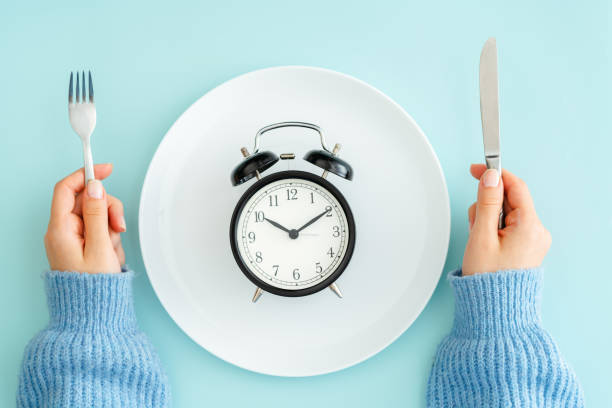The #1 Rated Blood Sugar Formula
Fasting: How Does It Affect Your Heart and Blood Pressure?

A cardiologist's perspective on pros and cons of fasting
Do you sometimes fast for religious reasons or as a lifestyle choice? If so, you may wonder what impact fasting has on your health. Can it reduce your blood pressure? Is it healthy for your heart? Is it dangerous in certain situations?
Cardiologist and endocrinologist Dennis Bruemmer, MD, PhD, sees many advantages in fasting from food for short periods. And, given our current understanding of mechanisms linking excessive weight to heart disease and the benefit of weight loss, he expects that more people will want to attempt it.
Though it depends on what you’re hoping to accomplish (and it’s not safe for everyone), it’s beneficial to limit your food intake, in general. “By every measure, eating less is better,” Dr. Bruemmer says.
Evolution has equipped us with the unique ability to store energy for periods of deprivation. However, in today’s world, food — and mostly unhealthy food — is available all around us. Across all species, including worms, flies, rodents, dogs, monkeys and humans, very few interventions have ever been shown to prolong life. But in all of these species, fasting and eating less is clearly one of them.
Below, Dr. Bruemmer answers questions about fasting and offers some tips for exploring it.
Can eating less strengthen your heart?
Research shows that fasting can help lower blood pressure, reduce cholesterol, control diabetes and reduce weight. “Four of the major risks for heart disease are high blood pressure and cholesterol, diabetes and weight, so there’s a secondary impact,” Dr. Bruemmer says. “If we reduce those, we can reduce the risk of heart disease.” One word of caution, though: Fasting can lead to an electrolyte imbalance. This can make the heart unstable and prone to arrhythmias. “So whenever we prescribe certain diets, including a very low calorie diet and protein-sparing modified fast diet, these require medical supervision. We check blood tests monthly and prescribe potassium supplementation to prevent electrolyte imbalance from occurring,” Dr. Bruemmer says. Some studies also show that fasting may help prevent cancer or increase the effectiveness of chemotherapy treatment. However, much of the research on fasting is in preliminary stages. “We have a lot more to learn about fasting,” he says.Is fasting a good way to lose weight?
Although it offers health benefits — including reduced heart disease and weight loss — it’s not really the best way to lose weight, Dr. Bruemmer says. While fasting helps you drop pounds quickly, it doesn’t help you stay in shape. “For long-term weight loss, it’s not terrific,” he says. “The only time we really recommend fasting for weight is if someone needs rapid weight loss, for instance, for surgery.”When is fasting not a good idea?
Fasting is not safe for everyone — so consult your physician before you begin. Those who should not fast include:- Women who are pregnant or breastfeeding.
- Children and teenagers.
- People who have type 1 diabetes.
- Those who have eating disorders.
What should you know about fasting before you begin? 3 tips
1. There are different methods of fasting.
Some people fast for eight hours, 24 hours or longer. Others cut way back on calories for a certain number of days each week or month. The popular “5, 2” plan involves two days of caloric reduction each week. You eat two meals (totaling about 500 calories) on fasting days. On non-fasting days, you follow a healthy diet, but you don’t restrict calories.2. Meal planning is essential.
“You want to make sure you have adequate nutrition before and after the fast,” Dr. Bruemmer says. And when you’re consuming less overall, it’s important to make sure your nutrition is sound when you do eat. Healthy foods to eat before a fast include:- Fruits and vegetables (these are helpful for hydration).
- Foods high in lean protein, like chicken or fish.
- Low-fat yogurt.
3. Afterward, break your fast slowly.
Don’t suddenly start eating everything in sight when you’re done fasting. “You don’t want to shock the system,” Dr. Bruemmer says. Instead, it’s best to start by snacking on a few dates or other dried fruit, for instance. Then take a break, and then eat fruit and other light foods at first. “Whether doing a fast for lifestyle or religious reasons, it’s always wise to talk to your doctor first,” Dr. Bruemmer says.Frequently Asked Questions:
Can intermittent fasting help you reduce high BP? Intermittent fasting doesn’t just help with weight loss, but can also bring down your blood pressure and sugar spikes.Can Intermittent Fasting Impact Your Blood Pressure?
Currently, intermittent fasting is popular for its health benefits. Research proves intermittent fasting can reduce your blood sugar, manage and help you lose weight, reduce your heart disease risk, and decrease inflammation.different methods of fastingeating healthy to lower blood pressurefasting affect your heart and BPfasting and blood pressurefasting and weight lossfasting safe for hypertensionhow can fasting help to reduce high blood pressurenegative impact of fasting to blood pressureweight loss reducing hypertension







